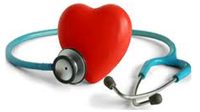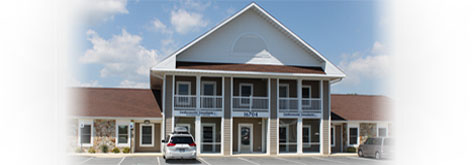Sick Sinus Syndrome (SSS)
Sick sinus syndrome (SSS) is a type of bradycardia in which the sinoatrial (SA), or sinus node is not working as it should. The sinus node is a small cluster of cells in the upper right chamber, or atrium, of the heart. It contains special "pacemaker" cells that generate the electrical signals that regulate the pace and rhythm of the heartbeat. These signals travel from the sinus node to the AV node. From the AV node, the signal is conducted along pathways that spread into the ventricles, causing them to contract and pump blood into the lungs and throughout the body.
Sick sinus syndrome (SSS) is not a specific disease, but a group of signs or symptoms that indicate the SA node is not functioning properly.
Some patients with sick sinus syndrome also have rapid heartbeats (tachycardia). Or the heartbeat alternates between too fast and too slow. This is called bradycardia-tachycardia syndrome. Often there is a long pause (asystole) between heartbeats, especially after an episode of tachycardia.
SSS affects about 3 out of every 10,000 people. It becomes more common as we age.
Types of Sick Sinus Syndrome
Sick sinus syndrome may be due to defects in the heart itself, or it can be related to factors outside the heart.
Some medications prescribed to treat high blood pressure, coronary artery disease and other conditions, for example, are known to cause bradycardia. This generally does not cause problems for most people, and drugs that slow the heart rate are useful treatments for some types of arrhythmias or other heart disorders. But they may cause low heart rates and bring out other symptoms of SSS in some individuals, such as elderly people with age-related degeneration of the SA node.
Sinoatrial block is a type of SSS in which the electrical signals move too slowly through the sinus node.
Sinus arrest is when the signal from the SA node has a pause in it's normal pacemaker activity.
Bradycardia also can result from abnormalities of the atrioventricular (AV) node, the part of the heart's conduction system that conducts electrical signals from the atria to the ventricles. These problems are commonly called heart block.
Symptoms
Many people with sick sinus syndrome have no symptoms, or the symptoms may not seem serious enough for concern. The condition may not be diagnosed until it is in an advanced stage. Typically, the first sign an individual with SSS notices is a consistently slow heart rate or bradycardia. Often, the rate falls to 40 to 50 beats per minute or less before it is noticed.
If you experience any sudden, unexplained episodes of fainting, consult your doctor.
Other symptoms may include:
- Fainting (syncope) can occur when the abnormal heart rhythm affects the heart's ability to pump a sufficient volume of blood to the brain.
- Fatigue and weakness may be signs that the heart is not pumping as well as it should. When the blood supply is inadequate, the body diverts blood to the most vital organs. This reduces blood flow to the muscles of the arms, legs or other parts of the body and the individual may lack energy or be unable to do normal tasks
- Shortness of breath, or dyspnea. People with this symptom often describe the sensation of not being able to take in enough air, or say they are "out of breath."
- Chest pains, or angina, that indicate the heart is not getting enough blood.
- Disturbed sleep. The abnormal rhythm of the heart may interfere with sleep and wake people up repeatedly during the night. Some people have a condition called sleep apnea in which they stop breathing off and on during the night. This condition may contribute to SSS and other heart disorders by reducing oxygen supply to the heart.
- Confusion. When the blood supply to the brain is diminished, people may have trouble understanding what is happening around them or make errors in judgment. They also may seem drowsy, have problems with balance or movement, or appear anxious or agitated.
- Palpitations describe an unusual awareness of the beating of the heart. The heartbeat may seem too fast or slow, or to beat in a chaotic, irregular pattern. People may describe a "pounding" in the chest, as if the heart is beating with unusual force. People with SSS who have episodes of tachycardia (an abnormally rapid heartbeat) often describe them as "palpitations."
Seeing the Doctor
There are some signs that a doctor may discover during a physical examination that suggest a diagnosis of SSS, such as:
- A pulse that is slower than normal.
- An irregular heart rhythm that can be heard with a stethoscope.
- Sinus "pauses," or gaps between signals from the SA node, that indicate the heart is not being paced at the normal, steady rate.
- "Escape" rhythms are electrical signals that originate from a part of the heart muscle other than the sinus node. If the SA node stops working or doesn't work properly, another pacemaker at the center of the heart called the AV node may begin signaling the heart to beat. Less often, the lower chambers of the heart also can generate escape rhythms that take over for the function of the SA node.
- A heart rhythm that alternates between slow and fast.
- Low or low-normal blood pressure.
If you have other questions, please email Mary Zook at mary.zook@cvcde.com. If you have urgent questions, please call 911 or call our office at 302-644-1233




